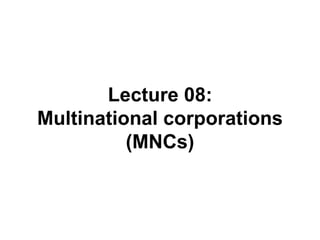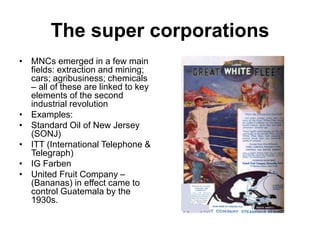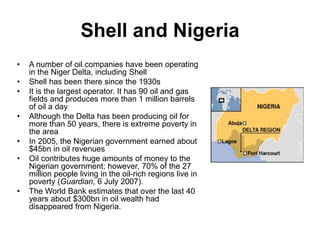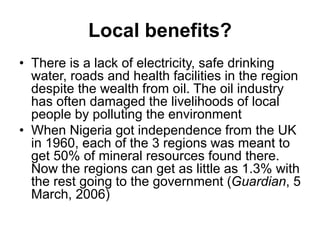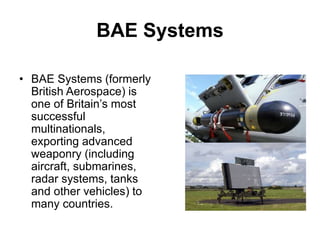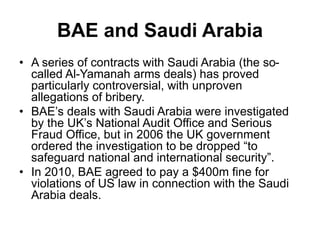This lecture discusses the history and operations of multinational corporations (MNCs). It explains that MNCs first emerged to facilitate long-distance trade in the early modern period. Major modern MNCs operate across a wide range of industries from extraction and manufacturing to services. While MNCs can stimulate economic development and job creation, they also wield significant power over governments and influence policies. The case study of Shell in Nigeria illustrates how MNC activities have negatively impacted local environments and communities in the Niger Delta region through oil spills, pollution, and suppression of dissent.
